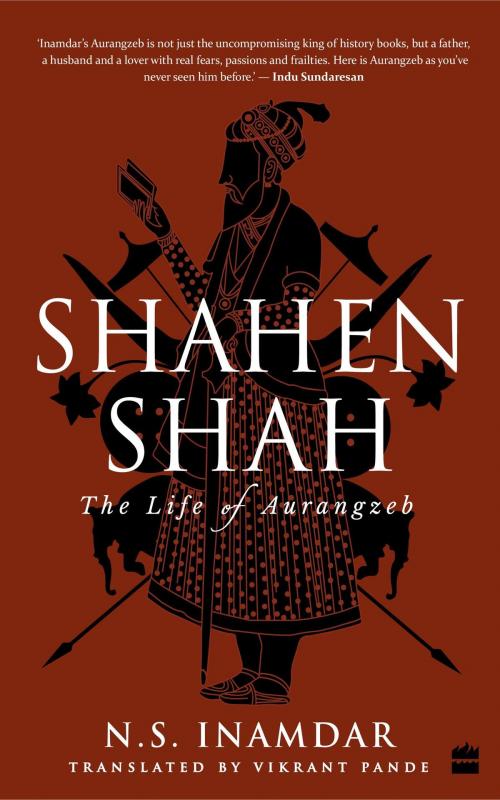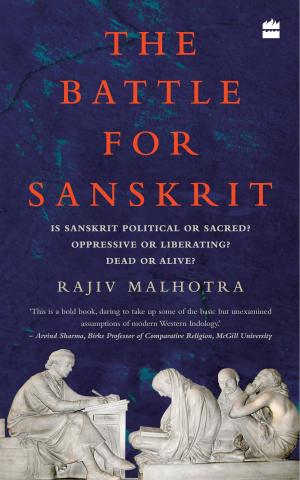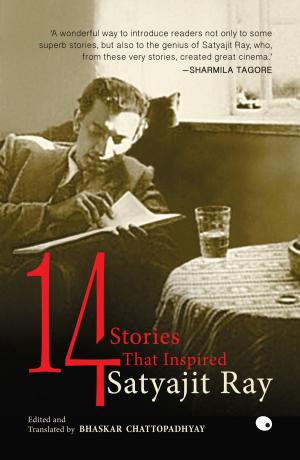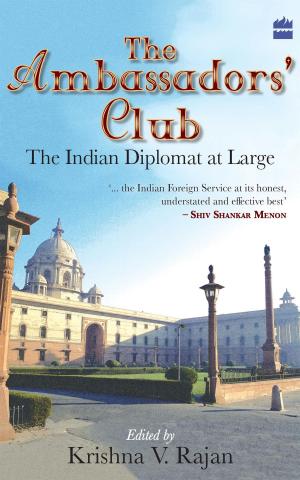| Author: | N.S. Inamdar, Vikrant Pande | ISBN: | 9789351777731 |
| Publisher: | HarperCollins Publishers India | Publication: | June 10, 2016 |
| Imprint: | HarperPerennial | Language: | English |
| Author: | N.S. Inamdar, Vikrant Pande |
| ISBN: | 9789351777731 |
| Publisher: | HarperCollins Publishers India |
| Publication: | June 10, 2016 |
| Imprint: | HarperPerennial |
| Language: | English |
Aurangzeb must rebel against his father, and compete with his brothers, especially Darashikoh who is Emperor Shah Jahan's favoured son, to become the shahenshah of India and sit on the Peacock Throne. In politics, after all, trust and betrayal are two edges of the same sword. Meanwhile, in his zenankhana, the begums, constantly worrying about inheritance and bloodlines, grow jittery at the arrival of Hira, a mere concubine, who seems to have all of Aurangzeb's heart. The air is heavy with anger and envy, and conspiracies are afoot. Thus begins the reign of one of the darkest characters in Indian history. He murders his own brothers, thows his father in the Agra Fort prison and sends his children into exile. He declares jehad and relentlessly fights the Marathas, famed for their guerrilla tactics, for the last twenty-six years of his life. Aurangzeb is at once the tragic emperor and the anti-hero who can never be at ease. But he is equally the sovereign who picked up the sword at the age of eighty-two to protect his empire. He has often been described as a tyrant and a zealot in historical texts. In truth, he was a complex, much-conflicted man carrying forward the traditions of his predecessors, and the blood-soaked culture of kingly succession. Shahenshah: The Life of Aurangzeb unravels the inner life of the formidable emperor, and the twists of fate and duty that come with a crown. An all-time favourite of Marathi literature, this is the most popular of N.S. Inamdar's sixteen hugely successful historical novels. This effortless translation tells an intricate, affecting story of a deeply misunderstood Mughal.
Aurangzeb must rebel against his father, and compete with his brothers, especially Darashikoh who is Emperor Shah Jahan's favoured son, to become the shahenshah of India and sit on the Peacock Throne. In politics, after all, trust and betrayal are two edges of the same sword. Meanwhile, in his zenankhana, the begums, constantly worrying about inheritance and bloodlines, grow jittery at the arrival of Hira, a mere concubine, who seems to have all of Aurangzeb's heart. The air is heavy with anger and envy, and conspiracies are afoot. Thus begins the reign of one of the darkest characters in Indian history. He murders his own brothers, thows his father in the Agra Fort prison and sends his children into exile. He declares jehad and relentlessly fights the Marathas, famed for their guerrilla tactics, for the last twenty-six years of his life. Aurangzeb is at once the tragic emperor and the anti-hero who can never be at ease. But he is equally the sovereign who picked up the sword at the age of eighty-two to protect his empire. He has often been described as a tyrant and a zealot in historical texts. In truth, he was a complex, much-conflicted man carrying forward the traditions of his predecessors, and the blood-soaked culture of kingly succession. Shahenshah: The Life of Aurangzeb unravels the inner life of the formidable emperor, and the twists of fate and duty that come with a crown. An all-time favourite of Marathi literature, this is the most popular of N.S. Inamdar's sixteen hugely successful historical novels. This effortless translation tells an intricate, affecting story of a deeply misunderstood Mughal.















